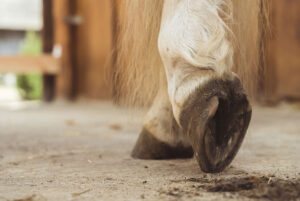Researchers Study the Genetics of Heaves
- Topics: Article
Recurrent airway obstruction (RAO, also called heaves) appears to have a genetic basis, but that genetic basis isn’t the same in all horses, Swiss researchers say. While the clinical signs can be the same, the disease's underlying genetic mechanisms can vary from one horse family to another.
What’s more, those genetic mechanisms are causing an immune response in the whole body, not just in the lung itself, said Simone Lanz, doctoral student and resident of the Swiss Institute of Equine Medicine at the University of Bern.
On a cellular level, there are significant differences between different RAO-affected horse families with different genetic bases, said Lanz. She and colleagues made this discovery by evaluating cytokines—proteins involved in activating immune responses which are expressed (produced and released) by special whole-body immune cells called peripheral blood mononuclear cells (PBMCs).
Based on the genetic background of the family, PBMCs react very differently with their cytokine expressions when exposed to various extracts, Lanz said, including exposure to hay dust, strongylids (nematode intestinal worms) parasite-related stimuli, and other allergens
Create a free account with TheHorse.com to view this content.
TheHorse.com is home to thousands of free articles about horse health care. In order to access some of our exclusive free content, you must be signed into TheHorse.com.
Start your free account today!
Already have an account?
and continue reading.

Related Articles
Stay on top of the most recent Horse Health news with


















